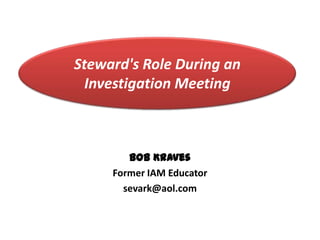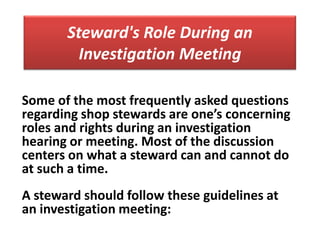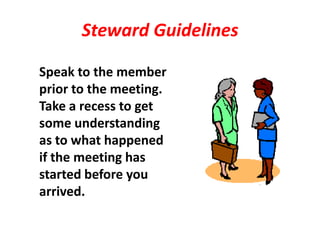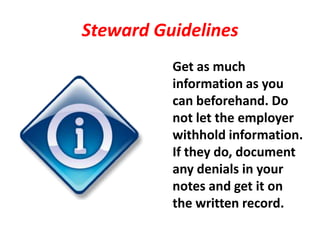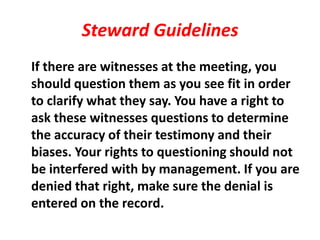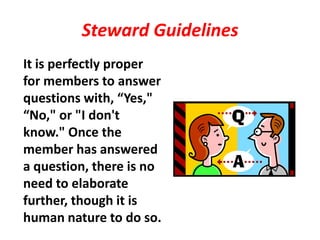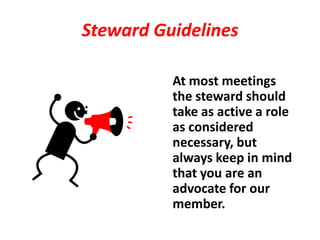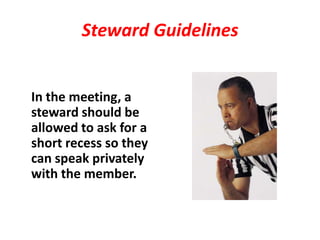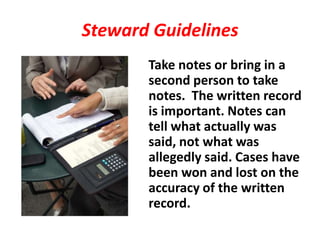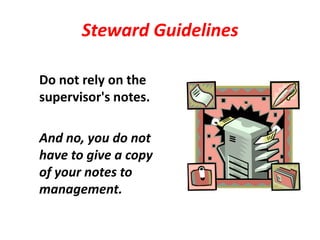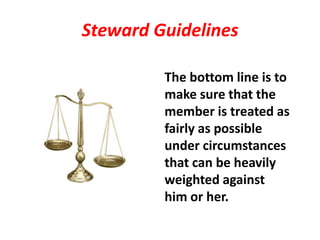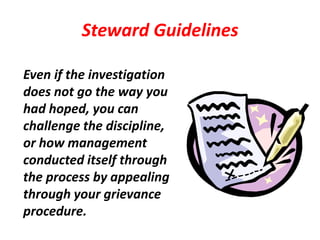Steward
- 1. Steward's Role During an Investigation Meeting Bob Kraves Former IAM Educator sevark@aol.com
- 2. Steward's Role During an Investigation Meeting Some of the most frequently asked questions regarding shop stewards are one’s concerning roles and rights during an investigation hearing or meeting. Most of the discussion centers on what a steward can and cannot do at such a time. A steward should follow these guidelines at an investigation meeting:
- 3. Steward Guidelines Speak to the member prior to the meeting. Take a recess to get some understanding as to what happened if the meeting has started before you arrived.
- 4. Steward Guidelines Get as much information as you can beforehand. Do not let the employer withhold information. If they do, document any denials in your notes and get it on the written record.
- 5. Steward Guidelines If there are witnesses at the meeting, you should question them as you see fit in order to clarify what they say. You have a right to ask these witnesses questions to determine the accuracy of their testimony and their biases. Your rights to questioning should not be interfered with by management. If you are denied that right, make sure the denial is entered on the record.
- 6. Steward Guidelines It is perfectly proper for members to answer questions with, “Yes," “No," or "I don't know." Once the member has answered a question, there is no need to elaborate further, though it is human nature to do so.
- 7. Steward Guidelines At most meetings the steward should take as active a role as considered necessary, but always keep in mind that you are an advocate for our member.
- 8. Steward Guidelines In the meeting, a steward should be allowed to ask for a short recess so they can speak privately with the member.
- 9. Steward Guidelines Take notes or bring in a second person to take notes. The written record is important. Notes can tell what actually was said, not what was allegedly said. Cases have been won and lost on the accuracy of the written record.
- 10. Steward Guidelines Do not rely on the supervisor's notes. And no, you do not have to give a copy of your notes to management.
- 11. Steward Guidelines The bottom line is to make sure that the member is treated as fairly as possible under circumstances that can be heavily weighted against him or her.
- 12. Steward Guidelines Even if the investigation does not go the way you had hoped, you can challenge the discipline, or how management conducted itself through the process by appealing through your grievance procedure.
